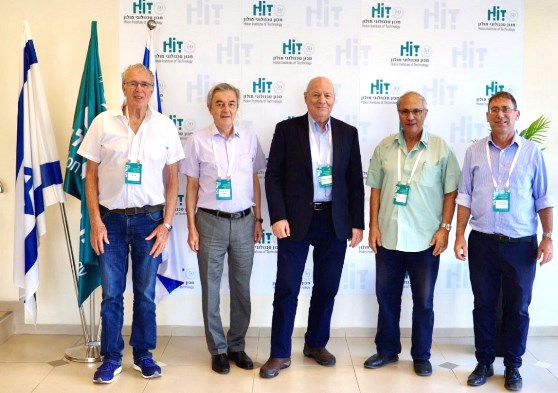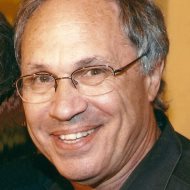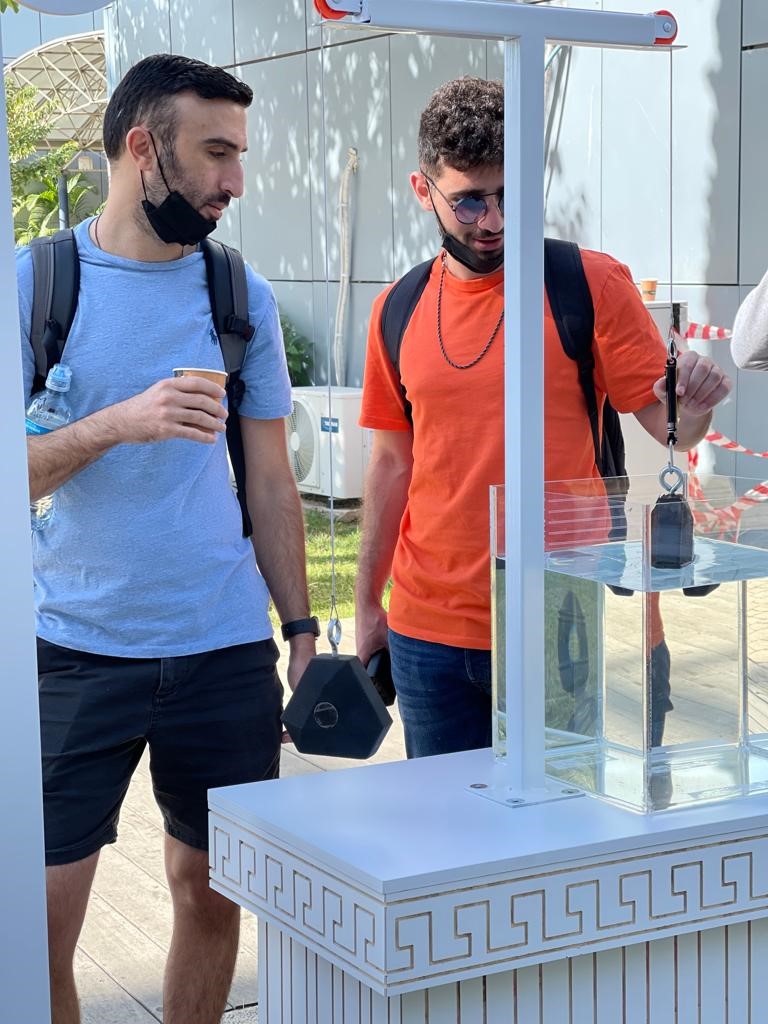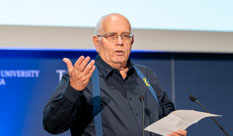More:
News & Stories
So - who was Archimedes, really?
So - who was Archimedes, really?
The Diverse Worlds of Archimedes: An Intriguing Look at the Everlasting Impact of a 3,000 Year-Old Genius
He invented differential and integral calculus as early as the 3rd century BC; he understood the need to express numbers in a far more sophisticated way than with mere roman numerals; and pondered the seemingly esoteric issues as to how many grains of sand were needed to fill the entire universe.

Photo credit: ESCF
From right to left: Mr. Samuel Goldberg, Prof. Adir Pridor, Prof. Edo Perlman, Prof. Eduard Yakubov, Mr. Zvi Trop
It is the breadth and scope of his genius that was the focus of a special all-day conference held at HIT-Holon Institute of Technology dedicated to his boundless achievements. The conference, the third in the Great Scientist Series founded and chaired by Prof. Adir Pridor, hailed the genius of Archimedes in a series of lectures showcasing how the principles he formulated in the 3rd century BC are still as relevant as ever today.
The “Diverse Worlds” Conference brought to light the inventions and solutions developed by Archimedes to a captive audience on campus and around the world through streaming in English and Russian.
"Archimedes was truly the greatest scientist in the history of the world," says Prof. Adir Pridor, respected mathematician and also Chairman of HIT's Executive Committee. Known to the general public mainly for the phrase "Eureka" attributed to him after the discovery of the "principle of flotation " (which bears his name), Archimedes was engaged in study of a broad array of scientific disciplines, most of which were not focused on by his contemporary colleagues. His findings and conclusions preceded his times, and were a precursor of much of what was to come thousands of years later.
 "Archimedes understood things two thousand years before humanity formally acknowledged them," says Prof. Pridor. "Amazement, curiousity and modesty were the traits that characterized him from the very beginning. This, by the way, characterized all the great scientists. One of the goals of the “Great Scientist” series in general, and this conference in particular, is to bring this greatness to the fore in a way that is clear and understandable to the general public – sharing and demonstrating the principles of science which are still with us today. By making this knowledge accessible, it is our goal to inspire others. Our exposure to the very special values of these great scientists should become an intrinsic way of life for us," concludes Prof. Pridor.
"Archimedes understood things two thousand years before humanity formally acknowledged them," says Prof. Pridor. "Amazement, curiousity and modesty were the traits that characterized him from the very beginning. This, by the way, characterized all the great scientists. One of the goals of the “Great Scientist” series in general, and this conference in particular, is to bring this greatness to the fore in a way that is clear and understandable to the general public – sharing and demonstrating the principles of science which are still with us today. By making this knowledge accessible, it is our goal to inspire others. Our exposure to the very special values of these great scientists should become an intrinsic way of life for us," concludes Prof. Pridor.
The conference program included lectures by renowned experts dealing with different aspects of Archimedes’ path-blazing work – but perhaps the most fascinating was the torturous and circuitous route of the Archimedes scrolls which defied ravaging by nations, wars, fires and avarice until they found their way finally to our era.
And so, we learn of the history of the naval battlefield from the fifth century BC to the present day which was based on Archimedes’ plans to defend his home city against the Roman navy; the use of the "principle of flotation" formulated by Archimedes for the design of sea-faring vessels, and the development and application of key mathematic principles in spite of the fact that a convenient way for writing numbers was not available.
The conference was opened by Prof. Eduard Yakubov, HIT President, with special opening remarks by Prof. Edo Perelman, Deputy Chairman of the Council for Higher Education.
The conference was accompanied by an inter-active outdoor exhibition which included 6 demonstrations of Archimedes’ principles dispersed throughout the campus, unfolding yet another glimpse into this unique man and an opportunity to discover his extraordinary achievements first-hand.

Photo credit: PR
In the photo: volume and mass facility
Posted: 10/11/2021
- News & Events
New Collaboration with Sheba Medical Center will qualify nurses to work in a digital environment.
Collaboration between HIT Holon Institute of Technology, the teaching authority of the Sheba Medical Center, and the Sheba-BEYOND virtual hospital will allow training nurses in Israel and around the world to work in a digital...



 Additional programs
Additional programs
